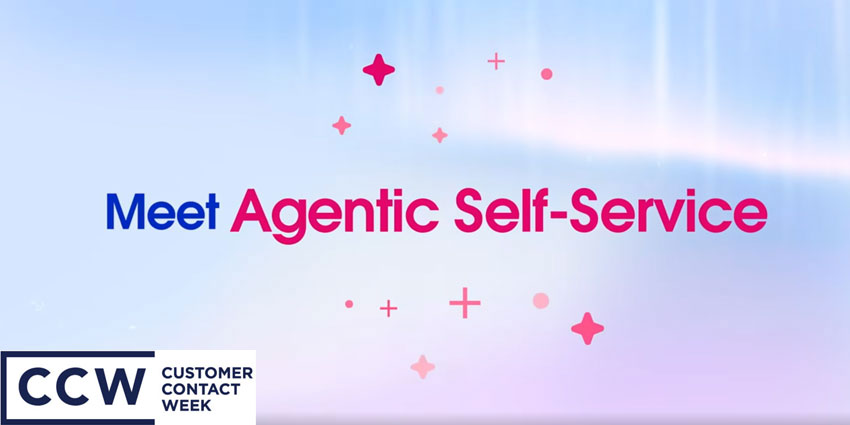Salesforce has introduced agentic self-service at Customer Contact Week 2025.
Essentially, it’s a customer portal that integrates with Agentforce – Salesforce’s agentic AI platform – to enable a self-service experience that’s “smarter, faster, and more personalized than ever.”
Available within Service Cloud, agentic self-service chiefly provides real-time assistance on the company website, resolving queries and helping customers complete tasks.
Yet, there are a couple of additional nifty features. For instance, a Dynamic Search function transfers customer search context to Agentforce so the company can offer proactive support via the portal.
Additionally, there’s a Dynamic Conversations tool that enables a multi-modal self-service experience, with customers able to submit files and Agentforce analyzing them to increase the scope for automation. The capability also makes link uploads possible.
The opportunity to improve self-service experiences with such functionality is evident in a 2024 Gartner survey, which found that 86 percent of online self-service queries go unresolved.
Kishan Chetan, EVP and GM for Service Cloud, believes Salesforce and agentic self-service can make a difference despite the already crowded conversational AI market.
“With Salesforce’s deeply unified platform and Agentforce, we are turning generic, time-consuming self-service into a guided, effortless experience that will considerably improve resolutions and cost savings,” he posted on LinkedIn.
This is a new era in self-service, and we’re just getting started.
As Chetan suggests, that unified platform is Salesforce’s secret sauce. By pulling context from a customer’s previous conversations, purchases, and buying signals – all stored within Data Cloud – Agentforce has plenty of data to reason with.
Therefore, it may adapt its solution and personalize the experience to each customer’s profile.
Additional benefits of agentic self-service include the prospect of reducing self-service resolutions by 80 percent, achieving up to five times faster ROI, and lowering total cost of ownership (TCO) by 20 percent, as per Salesforce.
Jim Roth, President of Customer Success at Salesforce, also underscores the potential to pivot from reactive to proactive customer service.
“Delivering proactive, top-tier customer service requires a level of capacity most companies struggle to fund. Agentforce is changing that,” he stated in a company blog post.
At Salesforce, we’ve reduced our case volume by eight percent — freeing up [the] capacity of our skilled Support Engineers to focus on proactive customer outreach. This isn’t just about a better customer experience – it’s cost-effective scalability, and it’s only the beginning of what Agentforce can do.
Nevertheless, some may accuse Salesforce of playing buzzword bingo with the term “agentic”. Indeed, shortly before “agentic self-service” came “agentic analytics”, a term coined by the CRM leader after unveiling the next generation of Tableau.
For Chetan, however, this announcement marks a new era of online self-service experiences.
Expect More on Agentic Self-Service at Dreamforce 2025
Chetan & Co. envision service experiences where customers receive solutions before they realize they have problems.
Indeed, Salesforce believes this is best practice and enables “proactive value creation”.
Such value creation could stem from simple use cases like subscription renewal reminders through to recommended service plans based on a customer’s product usage.
According to Salesforce, combining Data Cloud, Agentforce, and customer portals will make these proactive use cases seem more tangible for many businesses.
As Chetan concluded in his aforementioned blog post:
We’re excited to roll out even more dynamic content updates, actions, and workflows across the entire self-service experience that adapt to each customer’s evolving needs. Stay tuned for more at this year’s Dreamforce.
At Dreamforce, Salesforce will also likely look to lay out the value of its massive $8BN acquisition of Informatica and run through the updated Agentforce pricing model.
Both moves are critical in initiating more of its 150,000 customers with the agentic AI platform, which Salesforce is pinning its hopes on. Over the past 12 months, 8,000+ have invested in Agentforce.







